Please don't forget to like the articles you read
7 Things You Can Do That May Help You Cope With Anxiety and Stress

Approximately 275 million people suffer from anxiety worldwide. Stress is another problem because, for around 75% of people, it affects their physical and mental health. Therapists can help deal with these issues and the negative effects they have on our lives. However, apart from long-term solutions that require a lot of commitment, there are also some things we can do on our own to help us feel better right away.
We at Bright Side found some science-based tricks that may help you calm down quickly, and we hope they work for you.
1. Gargling

Gargling stimulates the vagus nerve, which sends information about anxiety regulation to your brain. Stimulating this nerve can slow the stress response, helping you feel less anxious and
2. The butterfly hug
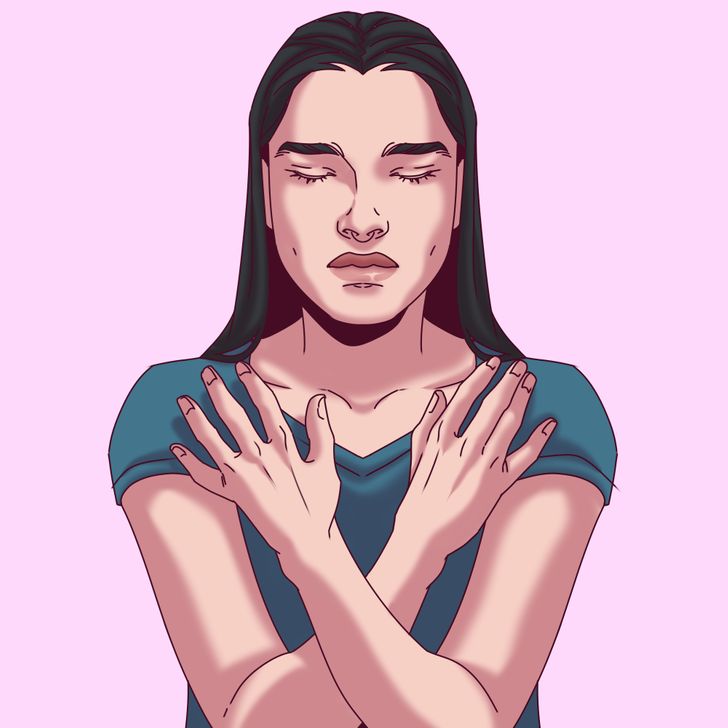
This bilateral stimulation technique can help you feel calmer and less anxious in the moment. Here’s how to do it:
- Cross your hands, palms down, over your chest.
- You can also interlock your thumbs. They should be placed right below your collarbone.
- Slowly start tapping near your shoulders with your hands, alternating left and right.
- It’s important to draw awareness to yourself and slow down your breath. That will help you feel more grounded.
3. Exhaling for longer
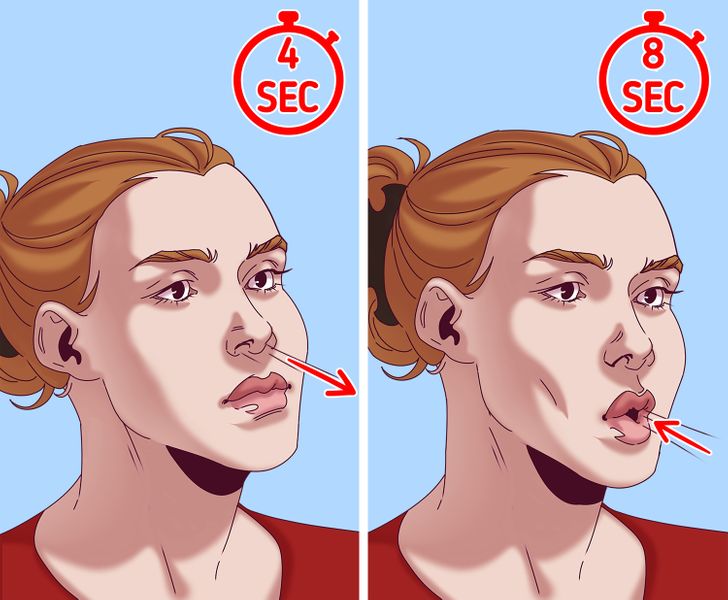
Another way to stimulate the vagus nerve is through slow breathing. Longer exhalations are especially good at helping reduce stress. Your exhales should be twice as long as your inhales. A good ratio is 4 seconds of inhaling followed by 8 seconds of exhaling. Thus, it’ll take you 12 seconds to complete one breathing cycle, and per minute, you’ll be able to do 5 of them, so it’s easy to count with your hand.
When you inhale, it’s recommended to do it through your nose. When you exhale, purse your lips, as if you were going to blow out candles on a birthday cake.
4. Smelling something familiar

Studies have shown that inhaling certain smells can help you feel less stressed. For example, aromatherapy with some essential oils can help you relax. Another thing that can calm down your nerves is smelling pleasant and familiar odors. Research suggests that smelling your partner’s used clothes can help you feel comforted.
5. Holding an ice cube
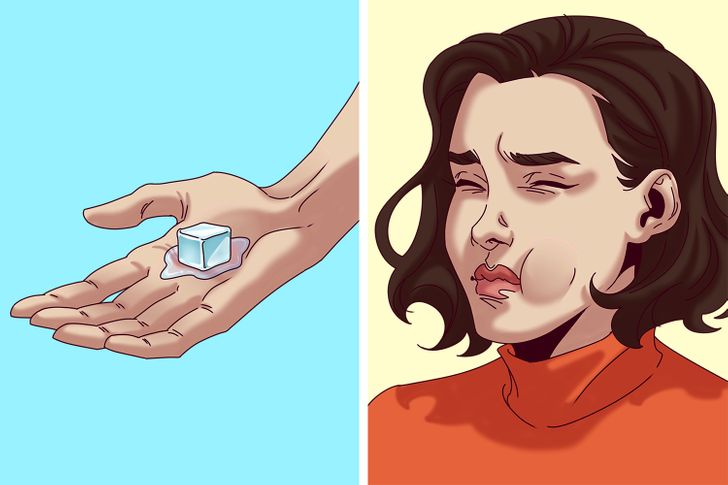
This is a trick that might help you manage panic attacks. Take an ice cube in your hand and hold it for as long as you can. Then put it in your other hand. This can help you focus your attention on the discomfort you’re feeling because of the cold and not on the panic attack, thus minimizing it. And if you’re not at home or don’t have ice nearby, you can always carry some sour candy with you. They can have a similar effect.
6. Progressive muscle relaxation
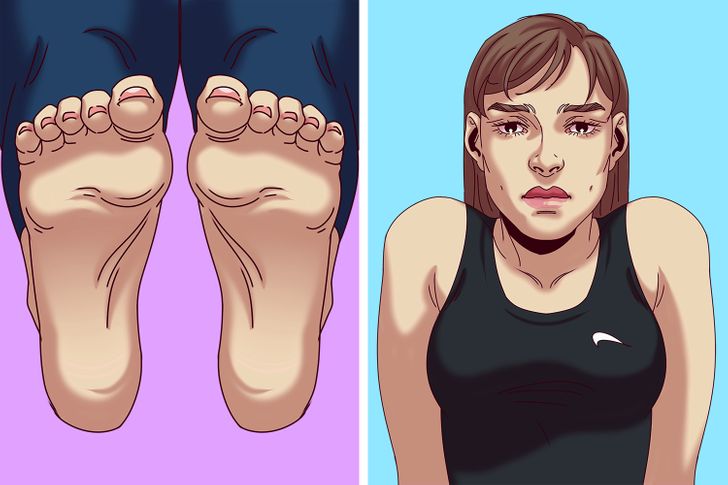
This method involves tensing and relaxing muscles throughout your whole body, and it can
- Feet: Curl your toes into your feet tightly and hold the position for 10 seconds. Then release.
- Shoulders: Squeeze your shoulders up to your ears and hold them there for 10 seconds. Then drop them back down.
- Face: Scrunch all parts of your face to the center and hold it like this for 10 seconds. Then relax your face.
7. Emotional freedom technique
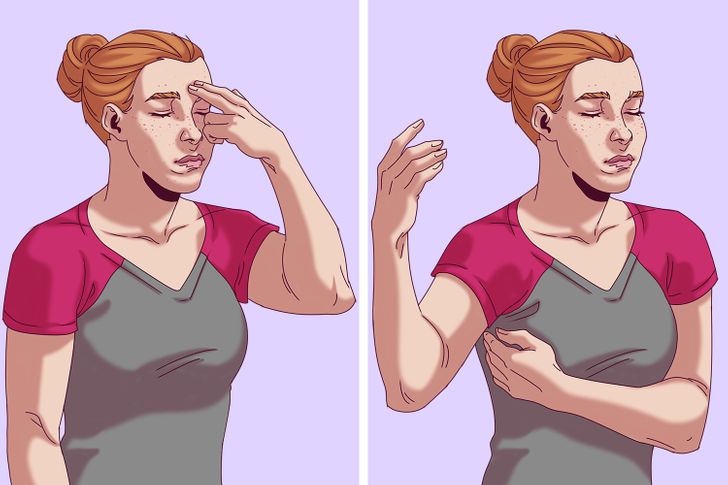
This technique has been proven to help with anxiety and depression. The emotional freedom technique (EFT) is when you tap specific points of your body with your fingertips. It can be more complex than just tapping. Usually, the person doing it also needs to focus on what’s troubling them and repeat certain short phrases. The 9 main tapping points include:
- Karate chop (the side of the hand)
- Eyebrow point
- Side of eye
- Under the eye
- Under the nose
- Chin point
- Collarbone point
- Underarm
- Top of the head
Have you ever tried any of these tricks? What helps you feel less stressed or anxious?
Comments
I find grounding yourself during a panic attack helps by looking around the room or area you are in and find something for all of your senses... something you can smell, something you can touch, something you can hear, something you can taste and something you can see... focus on those things, use 'mindfulness' to think about how that object looks, feels, tastes sounds and smells... this should help you to be grounded and focus on other things until you feel more calm. Breathing exercises can really help too. There are many different books on mindfulness but it really is a good thing to practise in our everyday lives, it helps us focus on the here and now, it lessons anxiety and can give you so much happiness.
Related Reads
I Refuse to Give My Inheritance to My Stepson—I’m Not His Personal Bank
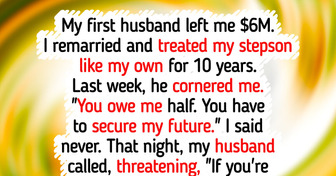
10 Mothers-in-Law Who Know How to Stir the Pot
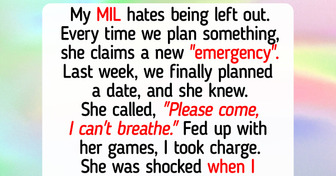
16 Families Whose Everyday Life Is Basically a Sitcom
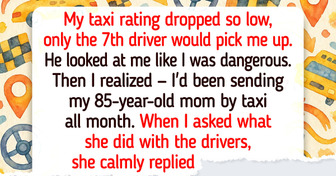
I Refuse to Be Treated Like the Family Nanny—And My Mom Chose Her Boyfriend Over Me
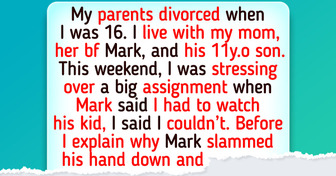
11 Times a Stranger’s Kindness Rewrote the Rest of Someone’s Life
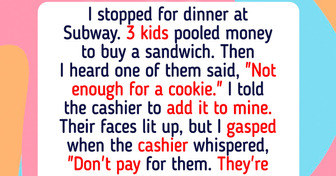
14 Stories That Prove Living With Kids Is Basically a 24/7 Comedy Show

18 Stories Where Kindness Made It Human Again
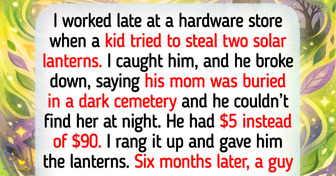
12 Moments That Remind Us to Be Kind, Even When the World Feels Harsh
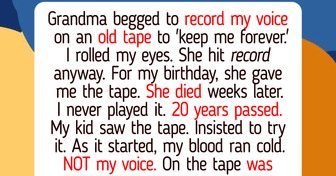
18 Stories That Prove Living in an Apartment Is Like Having a Front-Row Seat to a Comedy Show
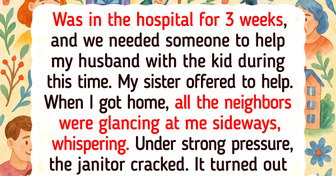
12 Heart-Stirring Moments Where Kindness and Empathy Changed a Stranger’s Life

18 Stories That Prove Kindness Can Come From the Most Unexpected Places
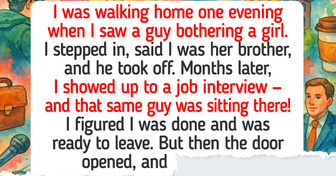
I Funded My Wife’s Luxury Demands—She Made Me Regret Every Penny
